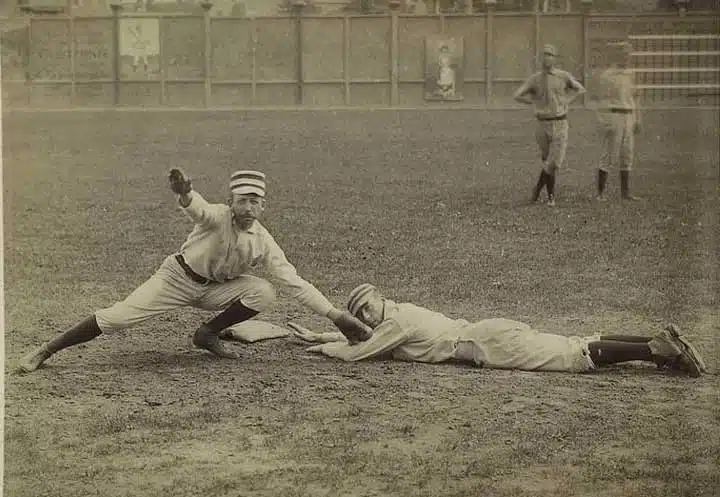Jim McElroy | Intentional Opium Overdose Death

The short life and tragic death of Jim McElroy, a one-season major league baseball player from the 19th century, serves as a poignant example of the enduring danger of opioid medications.
How Jim McElroy Died
On February 24, 1889, McElroy committed suicide in Needles, California, with an intentional opium overdose.
When taken at high doses, opium acts similarly to modern narcotic painkillers like morphine (its primary component), heroin, and fentanyl.
McElroy was only 26 at the time of his suicide, and it’s likely that the former major league player was struggling with severe mental health issues related to depression and disappointment with his baseball career ending so abruptly.
About James McElroy
James D. McElroy was born in 1862 in Napa County, California. After completing high school, he attended Saint Mary’s College of California in Moraga.
The records of his professional baseball career begin in the minors on the opposite side of the nation in 1884, with McElroy pitching for the single season of the short-lived Baltimore Monumentals of the Eastern League against the Wilmington Quicksteps.
Professional Career
Before the opening of the 1884 baseball season, Harry Wright took over as the Philadelphia Quaker’s manager and took notice of McElroy’s talent as a pitcher. Wright is also responsible for changing Philadelphia team’s name from the Quakers to the Philadelphians, which was then shortened to the Phillies.
Under Wright, McElroy would pitch for thirteen games for the Philadelphia team and an additional game for the Wilmington Quicksteps. The rookie pitcher was recognized for throwing extremely hard, but his pitches tended to go wild.
By the end of the season, McElroy was released and his professional MLB career curtailed. His W/L record was 1-13 and he had a career earned run average of 5.12. He finished no games and had 46 recorded wild pitches and one home run.
Recovery Is Possible
Today, up to a quarter of those with mental illness also suffer from a substance use disorder, and those with substance use disorders are up to three times more likely to have a mental illness.
However, professional care and support make recovery from mental health and substance use disorders possible. To learn how we treat addiction and mental health, please contact us today.
Written by Ark Behavioral Health Editorial Team
©2024 Ark National Holdings, LLC. | All Rights Reserved.
This page does not provide medical advice.
Major League Baseball (MLB) - Jim McElroy Stats, Fantasy & News

Questions About Treatment?
Ark Behavioral Health offers 100% confidential substance abuse assessment and treatment placement tailored to your individual needs. Achieve long-term recovery.
100% confidential. We respect your privacy.
Prefer Texting?
Our friendly support team is here to chat 24/7. Opt out any time.







 Learn More
Learn More








